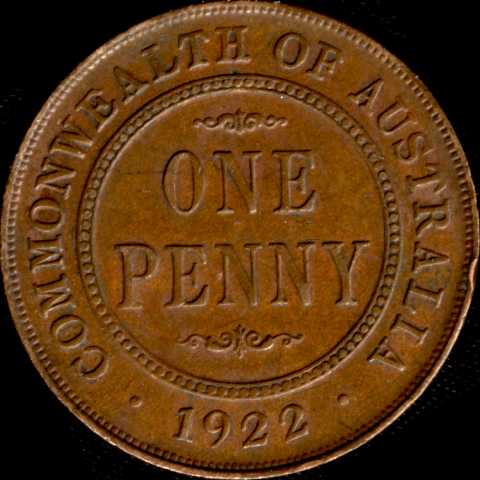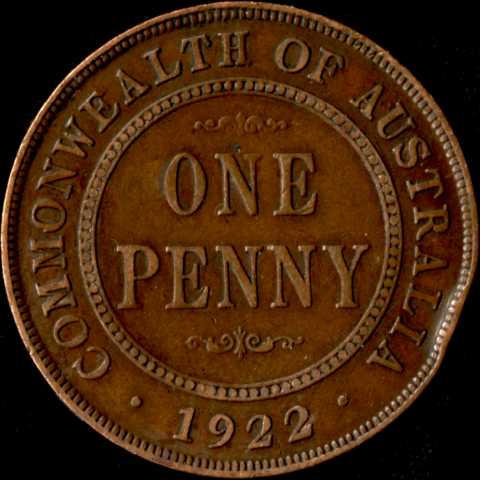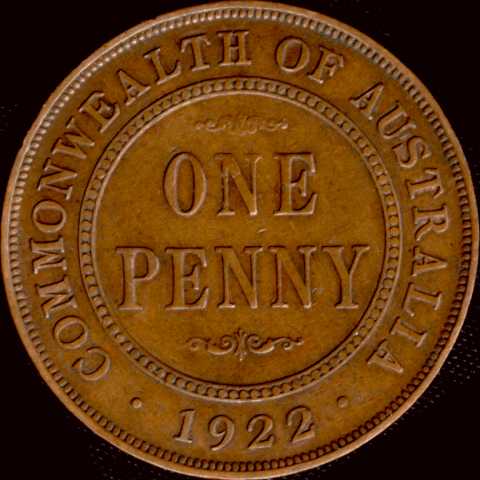
Common variety. Narrow date. 9 leans to the left.
The Melbourne and Perth coins have different obverses.

Rare. Wide date. 9 leans to the right.

Rare. Even wider date. 9 is very low and leans to the right.
|
|
John Dean described six varieties of the 1922 penny but ignoring the fishtailing of the dies (what Dean called "curved base" lettering) the number reduces to four. I can confirm all of these.
Mintage Designation
P22M.1B P22P.2B Obverse
London Calcutta Reverse
Birmingham Birmingham Mint
Melbourne Perth Mint mark
None None Mintge
12,697,000 included
The pictures below illustrate just the coins from the Melbourne Mint. The Perth
coins all have exactly the same reverse as P22M.1B.1, the common variety from Melbourne.
 |
P22M.1B.1 and P22P.2B Common variety. Narrow date. 9 leans to the left. The Melbourne and Perth coins have different obverses. |
 |
P22M.1B.2 Rare. Wide date. 9 leans to the right. |
 |
P22M.1B.3 Rare. Even wider date. 9 is very low and leans to the right. |
The distinction between the second and third varieties is very subtle.
|
The dates on the specimens shown above are shown here at 2x magnification to make
the difference a bit easier to see. The difference between the first two should be fairly obvious. Look for the orientation
of the 9 and the gap between the 1 and the 9. It is much harder to spot the difference between the second and third pictures.
Look at the position of the final 2 with respect to the rim denticles below it.
In the third picture the entire date spans about half a denticle more than in the
second picture. This matches the illustrations in John Dean's book. |
The following table shows the result of a study that I conducted on a batch of
1922 pennies that came from a commercial hoard. I have no idea if the sample is
regionally biased. If such a bias exists it would probably affect the relative abundance
of the Melbourne vs Perth issues. The relative abundance of the Melbourne varieties
is unlikely to show any regional dependencies.
|
Variety |
Number found |
Relative frequency |
|
P22M.1B.1 |
179 |
A little over 80% |
|
P22M.1B.2 |
2 |
Less than 1% |
|
P22M.1B.3 |
3 |
Less than 1% |
|
P22P.2B |
45 |
Almost 20% |
|
Total |
229 |